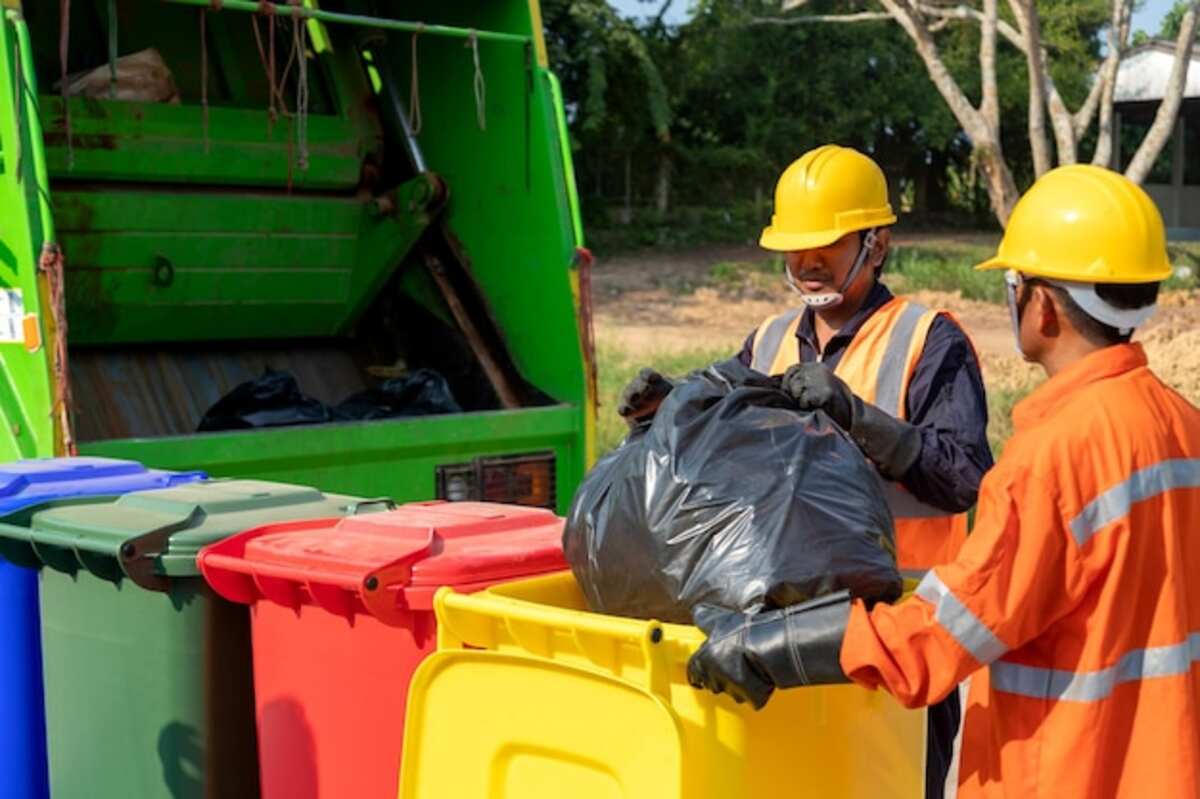Waste Collection: Embracing a Greener Tomorrow
Waste collection is a critical facet of responsible living in a world where environmental concerns take center stage. Every piece of waste we generate has a lasting impact on our planet, and proper waste collection practices are essential to mitigate these effects. Understanding the nuances of waste collection becomes imperative as we navigate the intricate web of waste disposal, recycling, and sustainability. What should you think about when it comes to refuse collection?
Types of Waste: Sorting for Success
Effective waste collection begins with thoroughly categorizing the types of waste we produce. Organic, inorganic, hazardous, and recyclable waste each demands distinct treatment. By sorting waste at its source, we lay the foundation for efficient collection and subsequent processing.
Methods of Waste Collection: Finding the Fit
Curbside pickup, community collection centers, and dumpster rental services present various methods for waste collection. Curbside pickup offers convenience but has limitations in accommodating more significant items. Community collection centers foster localized waste management solutions, while dumpster rentals cater to projects generating substantial waste volumes.
Challenges in Waste Collection: Tackling the Trials
Despite the growing awareness of waste-related issues, challenges persist. Insufficient infrastructure, lack of education, and the alarming rise of illegal dumping pose formidable obstacles. Addressing these challenges requires collaborative efforts from citizens, businesses, and governments alike.
Innovations in Waste Collection: Pioneering a New Era
The digital age brings innovation to the realm of waste collection. Smart waste bins equipped with sensors optimize collection routes, reducing unnecessary emissions. Internet of Things (IoT) technology aids in tracking waste, leading to cost savings and a smaller carbon footprint. Robotic waste collectors introduce automation for enhanced efficiency.
Role of Government and Regulations: Charting the Course
Governments worldwide play a crucial role in waste management through legislation and regulations. They encourage businesses and individuals to adopt eco-friendly habits by enforcing responsible waste disposal practices. Collaborative partnerships between governments, businesses, and citizens pave the way for a cleaner environment.
Community Participation: Everyone’s Responsibility
Empowering individuals and communities to participate actively in waste reduction efforts is vital. Simple steps like recycling, reducing single-use plastics, and raising awareness about waste-related issues collectively contribute to a cleaner planet.
Benefits of Proper Waste Collection: Beyond the Bin

The positive effects of proper waste collection reverberate throughout society. Preserving the environment, reducing pollution, and conserving valuable resources through recycling and upcycling become achievable goals. Best way to find the couch removal service.
Waste-to-Energy Conversion: Balancing Act
Innovative approaches like waste-to-energy conversion offer an alternative to traditional disposal methods. While incineration and biogas generation contribute to energy production, striking a balance between energy creation and environmental concerns remains imperative.
Global Perspectives on Waste Collection: Learning from Leaders
Different countries offer valuable insights into waste management practices. We gain inspiration and knowledge by examining successful models to improve our waste collection strategies.
Educational Initiatives: Nurturing Responsible Citizens
Educational institutions play a pivotal role in shaping future behaviors. By integrating waste awareness into curricula, schools can foster environmentally conscious generations.
Businesses and Corporate Responsibility: Walking the Talk
Businesses have a responsibility to adopt sustainable waste management practices. They can make a significant impact through efficient waste collection, recycling partnerships, and reduced single-use items.
The Role of Technology: Revolutionizing Waste Management
Cutting-edge technologies like AI-powered waste sorting and big data analytics revolutionize waste collection. These innovations optimize resource allocation and minimize waste generation.
The Future of Waste Collection: A Promising Horizon
As waste collection adapts to a changing world, the future holds exciting possibilities. Continued advancements in waste management and a shift toward circular economies promise to create a more sustainable future.
Conclusion: A Call to Action
In the tapestry of environmental conservation, waste collection is a thread that weaves responsible living together and a greener tomorrow. By embracing proper waste disposal practices and supporting ongoing initiatives, we can collectively contribute to a cleaner, healthier world. Check out the Best info about Chingford waste collection.
FAQs about Waste Collection
Why is waste collection important?
Proper waste collection prevents environmental pollution and conserves resources by facilitating recycling and responsible disposal.
What are the challenges in waste collection?
Challenges include insufficient infrastructure, lack of education, and illegal dumping, which undermine effective waste management.
How can individuals contribute to waste reduction?
Individuals can contribute by recycling, reducing single-use items, and participating in community clean-up initiatives.
What role does technology play in waste collection?
Technology enhances waste collection efficiency through innovations like smart waste bins, robotic collectors, and AI-powered sorting.
What is the future of waste collection?
The future involves continued technological advancements, sustainable waste management practices, and global collaboration toward a cleaner environment.
Read also: Several Crucial Functions of Good Plumbing Service

